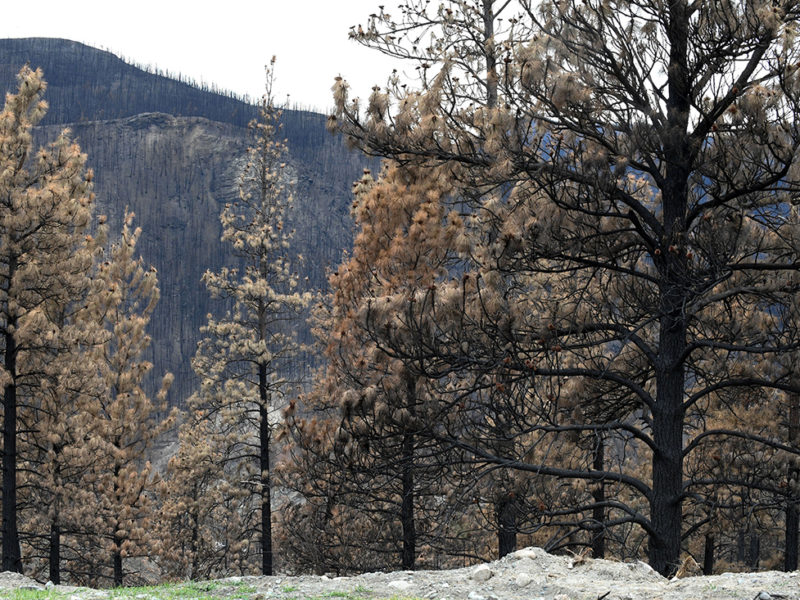Ranchers in areas hit hard by last year’s heat dome, wildfires and drought shouldn’t count on rushing out on their rangeland this summer, cautions a professional agrologist.
Chris Wellman, a fence contractor and former range agrologist with the Vernon Forest District, says many herds may need to stick close to home this season pending an assessment of range conditions.
“The problem with this whole thing about grazing now is that all the Ministry [of Forests] infrastructure has been taken out – all the pasture boundaries, the fencing, the water developments – [they] have been compromised because of the fires,” he says. “As far as getting cattle into these areas, it’s virtually impossible. You could do electric fencing, but the terrain doesn’t lend itself to that.”
Fires can be beneficial for soils by returning nutrients and reducing future fire loads. However, they also leave soils susceptible to erosion.
“The soil has no structure at this time. It needs snow-press, it needs a year or two to establish and really get structure back in the soil,” says Wellman.
Pasture conditions depend on the severity of the wildfires in each area. The province may require that some ranchers take acreage out of their grazing rotations to allow the land to recover.
“I would think that you would be very lucky in these heavily impacted areas if there’s any grazing at all,” says Wellman.
The impact of such requests aren’t lost on ministry staff, who Wellman says have been doing everything they can to accommodate ranchers through the winter and know a difficult season lies ahead.
“[They’re] trying to find them programs, help them with hay or find other pastures that are vacant or other Crown tenures that are vacant. They are scrambling. It’s chaos,” he says. “It’s a really horrible situation that we’re put in. The Ministry of Forests is absolutely sweating every night trying to figure out how they’re going to help these guys. Those people are run ragged right now.”
Wellman fears for large ranches that are short on feed and depend on grazing leases to feed their herds. If they can’t access their leases, that will effectively shut them off from natural feed and force them to buy forage. Some may choose to sell.
“Being put in this type of position – I wouldn’t want to be in their place,” says Wellman, who grew up on a ranch and knows the business first-hand. “It’s crazy. Some of these guys run substantial numbers. How are they going to feed these animals during the summer? Hopefully it rains all summer long or we’re going to be in trouble.”


 Apple growers consider marketing commission
Apple growers consider marketing commission